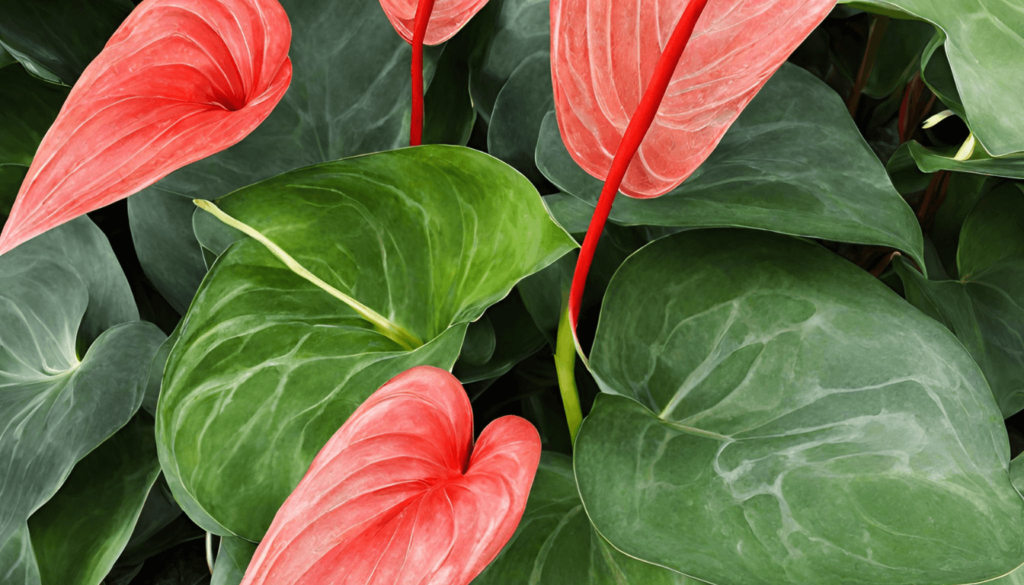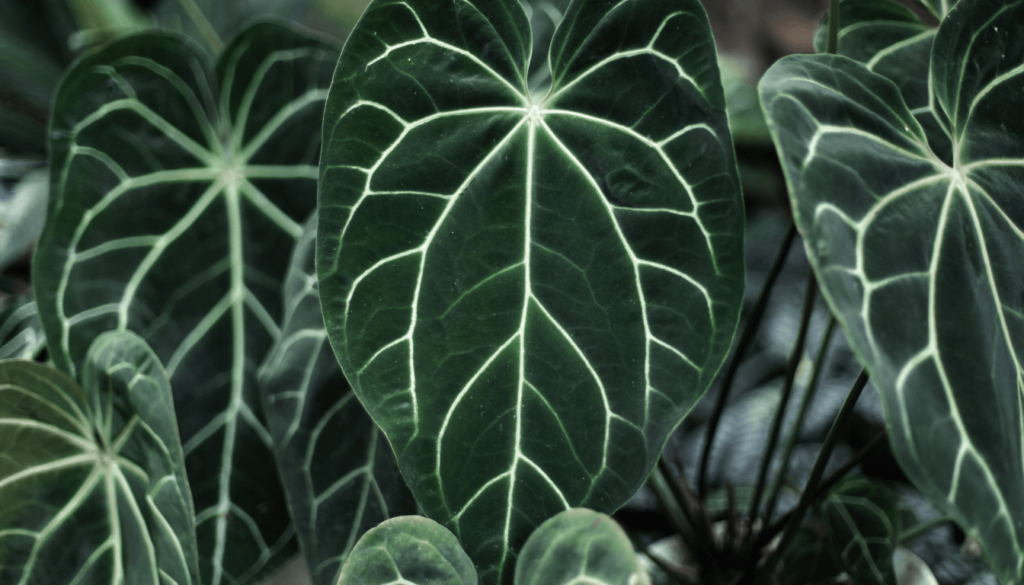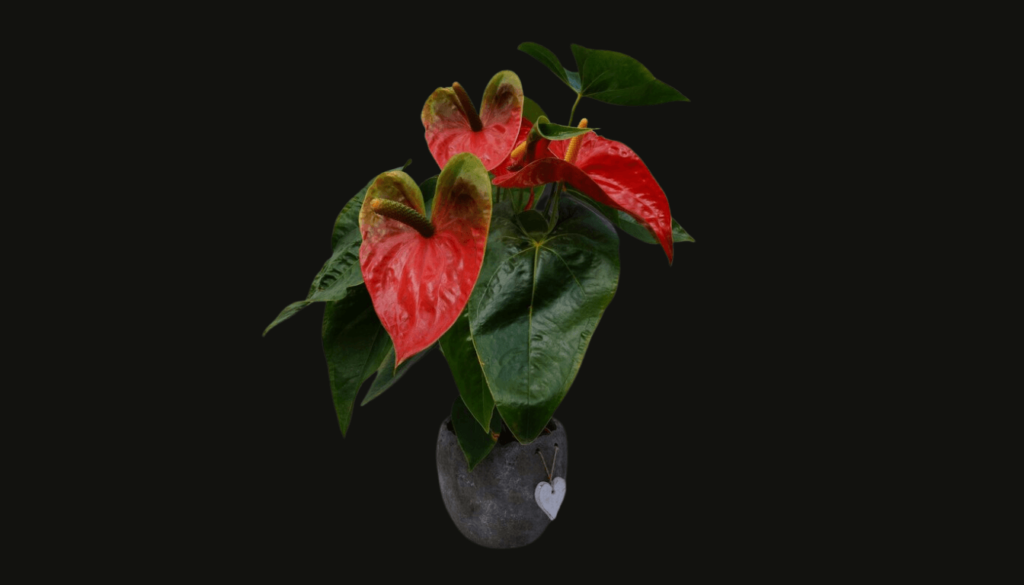As avid plant enthusiasts ourselves, we know how crucial it is to find the best fertilizer for Anthurium Warocqueanum to ensure the health and vibrancy of this rare and beautiful plant. That’s why we embarked on a journey to discover the top-rated fertilizers specifically tailored for your Anthurium Warocqueanum, leaving no stone unturned in our quest for the perfect Anthurium Warocqueanum fertilizer. Our goal? To provide you with all the knowledge and resources you need to ensure your precious greenery thrives.
Key Takeaways
- Importance of choosing the best fertilizer for Anthurium Warocqueanum’s growth.
- Exploring nutritional requirements and essential nutrients for the plant’s health.
- Understanding the optimal soil pH for nutrient absorption.
- Basic principles of Anthurium Warocqueanum fertilization to help you make informed decisions.
- Different fertilizer formulations and their specific benefits for Anthurium Warocqueanum.
- Organic fertilizer options that provide natural care without compromising plant health.
- The many benefits of using organic fertilizer for sustainable growth and soil health improvement.
Understanding the Unique Needs of Anthurium Warocqueanum

To ensure your Anthurium Warocqueanum thrives, it is essential to understand its unique nutrient requirements and the underlying factors that affect its nutritional health. In this section, we will delve into the essential nutrients that promote robust growth, the importance of soil pH for nutrient uptake, and the visual signs that indicate nutritional deficiencies in your Anthurium Warocqueanum. We will also provide valuable recommendations regarding the appropriate fertilizer that caters to the plant’s needs.
Essential Nutrients for Robust Growth
Anthurium Warocqueanum, like other plants, requires a balanced supply of essential nutrients for its optimal growth and development. These essential nutrients can be grouped into two categories: macronutrients and micronutrients. The significant macronutrients are Nitrogen (N), Phosphorus (P), and Potassium (K), while essential micronutrients include elements such as Calcium (Ca), Magnesium (Mg), and Iron (Fe). The recommended fertilizer for Anthurium Warocqueanum should contain these essential nutrients in appropriate proportions.
The Importance of Soil pH for Nutrient Uptake
A crucial aspect of Anthurium Warocqueanum’s nutrition involves maintaining the appropriate soil pH to enable efficient nutrient absorption. The ideal soil pH for Anthurium Warocqueanum ranges between 6.0 and 7.0. Proper soil pH is of high importance as it influences the nutrient availability to the plant and their uptake efficiency. Routinely monitoring and adjusting the soil pH is essential in providing the best environment for the plant’s continuous development and well-being.
Signs of Nutritional Deficiencies in Anthurium Warocqueanum
Various signs can indicate nutritional deficiencies in your Anthurium Warocqueanum. Symptoms can manifest through leaf color, texture, or shape. By closely observing these signs, one can act promptly and replenish the plant with essential nutrients through the appropriate fertilizer.
| Nutrient | Deficiency Symptoms |
|---|---|
| Nitrogen (N) | Yellowing of older leaves, reduced growth rate, and smaller leaves |
| Phosphorus (P) | Dark green leaves, leaf curling, and reduced root growth |
| Potassium (K) | Leaf-tip burn, curling leaves, and weak roots |
| Calcium (Ca) | Leaf-tip burn, distorted leaves, and poor root development |
| Magnesium (Mg) | Interveinal chlorosis, leaf curling, and poor root development |
| Iron (Fe) | Yellowing of young leaves, interveinal chlorosis, and reduced growth rate |
To promptly address nutritional deficiencies, it is crucial to use a comprehensive and balanced fertilizer specifically designed for Anthurium Warocqueanum. By understanding the plant’s unique needs and following expert recommendations, you will be well on your way to nurturing a thriving and visually stunning Anthurium Warocqueanum plant.
Anthurium Warocqueanum Fertilizer 101: The Basics
When it comes to the proper care of your anthurium warocqueanum, fertilizer selection is a vital component. With various types and formulations available, it’s essential to understand how to find the best fertilizer for anthurium warocqueanum. In this section, we’ll cover basic principles every plant owner should know and share practical tips on reading labels and deciphering those numbers.
First, let’s discuss the three primary nutrients your anthurium warocqueanum requires. They are nitrogen (N), phosphorus (P), and potassium (K). These elements are crucial for maintaining your plant’s overall health and vibrant foliage. When choosing an anthurium warocqueanum fertilizer, check the product label’s N-P-K ratio printed in the format of 10-10-10, for example. This means the fertilizer consists of 10% nitrogen, 10% phosphorus, and 10% potassium.
Pro Tip: Look for a balanced fertilizer with equal N-P-K ratio, like a 10-10-10 or 12-12-12 blend, or choose one with slightly higher nitrogen content for promoting lush foliage in your anthurium warocqueanum.
Now, let’s ensure you don’t feel overwhelmed by the array of available fertilizers. Here’s a helpful table breaking down the essentials for easy reference:
| Type of Nutrient | Common Symbols | Main Functions in Anthurium Warocqueanum |
|---|---|---|
| Nitrogen (N) | N | Promotes healthy leaf development, enables photosynthesis, and supports overall plant growth |
| Phosphorus (P) | P | Supports root development, encourages blooming, and plays a crucial role in energy production within the plant |
| Potassium (K) | K | Enhances the plant’s resistance to diseases and pests, improves water management, and strengthens cell walls |
Armed with this knowledge, you’ll be able to assess various fertilizers and select the best fertilizer for anthurium warocqueanum. Remember to weigh factors such as its N-P-K ratio, type (liquid or granular), and longevity (how often it needs to be applied). Also, consider opting for organic fertilizers that benefit not only your anthurium warocqueanum but also the environment and overall soil health. Happy fertilizing!
Selecting the Best Fertilizer for Anthurium Warocqueanum

In the quest to find the recommended fertilizer for Anthurium Warocqueanum, it is essential to understand the different formulations and consider organic options that provide natural care. Let us delve into the various fertilizers available and discuss how to determine the right frequency and dosage for your Anthurium Warocqueanum.
Evaluating Formulations: Liquid vs. Granular
Fertilizers come in two basic formulations: liquid and granular. Liquid fertilizers are generally a mixture of water and nutrients that can be easily absorbed by the plant’s roots. They offer the advantage of a faster nutrient uptake, making them suitable for plants needing a quick boost. However, they need to be applied more frequently, which might be a concern for busy plant owners.
On the other hand, granular fertilizers are slow-release pellets that gradually disperse nutrients over time. They are a great option for consistent nutrient delivery to support your Anthurium Warocqueanum’s long-term growth. However, they may require proper watering practices to ensure optimal absorption of nutrients.
Ultimately, choosing between liquid and granular formulations depends on your personal preferences, plant needs, and maintenance schedule.
Organic Fertilizer Options for Natural Care
For plant enthusiasts seeking a more holistic and eco-friendly approach, organic fertilizer for Anthurium Warocqueanum is a fantastic option. Organic fertilizers are made from naturally occurring elements like compost, manure, or worm castings. They provide essential nutrients to promote plant growth while also nourishing the soil’s microbes, ensuring a healthier ecosystem for your Anthurium Warocqueanum.
While organic fertilizers are typically slower acting than their synthetic counterparts, they often provide a longer-lasting and more sustainable nutrient supply. Some popular organic options for Anthurium Warocqueanum include seaweed extract, fish emulsion, and compost tea. Keep in mind that organic fertilizers might have a distinct odor, which may or may not be an issue for indoor applications.
Frequency and Dosage: How Much to Apply
The correct application of fertilizer is crucial to avoid over-fertilization or underfeeding your Anthurium Warocqueanum. To determine the proper frequency and dosage, start by reading the instructions on the packaging of your chosen fertilizer. Most manufacturers provide specific guidelines for various plant types.
As a general rule, Anthurium Warocqueanum prefers a mild feeding every four to six weeks during its active growth season. For liquid fertilizers, consider diluting the recommended dosage by half to minimize the risk of burning your plant’s roots. When using granular fertilizers, follow the label instructions and adjust accordingly based on your plant’s needs and growth habits.
Monitoring your Anthurium Warocqueanum’s health and adjusting your fertilizing routine accordingly is key to ensuring its optimal well-being. Experimenting with different formulations, organic options, and application methods can help you find the best fertilizer suited for your Anthurium Warocqueanum’s requirements.
Make way for the queen! Anthurium warocqueanum is finally home! #plantPh pic.twitter.com/aPaIuDbMO8
— . (@heyjoshd) May 19, 2021
The Benefits of Organic Fertilizer for Anthurium Warocqueanum

In this final section, we explore the advantages of choosing organic fertilizer for your anthurium warocqueanum, highlighting how natural ingredients can promote sustainable growth while improving soil health. Let’s discuss the long-term benefits of going organic for both your plant and the environment.
Natural Ingredients for Sustainable Growth
Organic fertilizers are derived from natural sources like compost, manure, bone meal, and worm castings. These nutrient-rich ingredients nourish anthurium warocqueanum without introducing harmful chemicals. By using organic fertilizer, you support sustainable growth by gradually releasing essential elements, promoting healthier root development, and ensuring a robust plant.
Organic Matters: Improving Soil Health
Beyond feeding your anthurium warocqueanum, organic fertilizers benefit the soil, too. As they break down, these fertilizers add valuable organic matter and stimulate the growth of beneficial microorganisms. This fosters a thriving ecosystem that promotes better nutrient uptake and improves the plant’s resistance to diseases, pests, and stress.
Long-Term Advantages of Going Organic
Using organic fertilizer for anthurium warocqueanum brings numerous long-term benefits, including reducing chemical runoff, preserving groundwater quality, and being a safer option for household pets and wildlife. By choosing organic, you’re making a conscious decision that benefits both your plant’s health and the environment, creating a more sustainable future.
FAQ
What are the essential nutrients for anthurium warocqueanum?
Anthurium warocqueanum requires a balanced diet of essential nutrients, including nitrogen (N), phosphorus (P), and potassium (K) for healthy growth. Additionally, they need trace amounts of micronutrients like calcium, magnesium, iron, and manganese.
How can I maintain the right soil pH for my anthurium warocqueanum?
The ideal soil pH range for anthurium warocqueanum is around 6.0-7.0. You can adjust the soil pH by using lime or sulfur, depending on whether you need to raise or lower it, respectively. Regularly monitoring the soil pH with a pH meter and providing optimal water quality can help maintain the proper range for nutrient uptake.
What are the signs of nutritional deficiencies in anthurium warocqueanum?
Signs of nutritional deficiencies may include chlorosis (yellowing of leaves), poor growth, leaf curling, or leaf necrosis (dead areas). By addressing these deficiencies through proper fertilization, you can restore your anthurium warocqueanum’s health and vitality.
What is the difference between liquid and granular fertilizers for anthurium warocqueanum?
Liquid fertilizers are quick-acting and easily absorbed by plants, while granular fertilizers release nutrients at a slower pace. Both options can be effective, but liquid options are often preferred for their ease of application, mixing ability with water, and compatibility with various watering systems.
How often should I apply fertilizer to my anthurium warocqueanum?
The frequency and dosage of fertilizer application depend on the formulation you choose. Refer to the product label for recommended guidelines. Generally, using a balanced liquid fertilizer diluted per the manufacturer’s suggestion is recommended, and this can be applied biweekly or monthly for optimal growth.
What are the benefits of using organic fertilizer for anthurium warocqueanum?
Organic fertilizers have numerous benefits, such as promoting sustainable growth, improving soil health, and being environmentally friendly. They are often considered safer for household pets and provide a gentle, slow-release feeding for your anthurium warocqueanum without the risk of over-fertilization.




